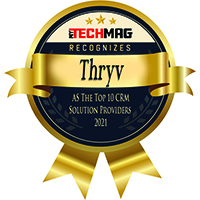CRM, or customer relationship management, is a platform that streamlines and automates your firm’s day-to-day operations. It serves as a centralized database that stores all customer data, customer interactions, and business data. It serves as a centralized database that stores all customer data, customer interactions, and business data. CRM software can aid in the automation of marketing and sales activities and the maintenance of long-term relationships with partners, vendors, and personnel.
Customer relationship management (CRM) software has consistently demonstrated its value for a wide range of enterprises across industries through successful deployment records. All top CRM software can manage multiple parts of an organization, including Customer Relations, Sales, Marketing, and Service Management. CRM assists marketing and sales management teams address the growing complexity of their teams while increasing their competitiveness.
Customer management strategies and CRM systems are becoming increasingly popular among businesses. However, successfully implementing a CRM system within a business is more complicated than it appears. The implementation of a CRM system necessitates a shift in the organization’s approach towards customer management.
CRM is crucial for a company’s collaboration between customer service, marketing, and sales. When it comes to enjoying the core benefits of CRM software, salespeople are the ones on the receiving end. Organizations have faced various difficulties, particularly when deploying a new CRM system for SMEs and startups. Despite the challenges of CRM deployment, implementing a suitable CRM solution is an excellent approach to demonstrate how much you appreciate your clients and prioritize customer service.
CRM Implementation Challenges
Cost
Cost is one of the most significant challenges that firms encounter when adopting a CRM solution. If done hastily and without careful considerations, it could end up being a pricey affair. Implementing CRM solutions without appropriate planning, or if done hastily, can be very costly. The first step is to figure out why you need a CRM system. This will provide you with a clear view of the implementation technique and CRM system you require, allowing you to set your budget.
Defining Clear Objectives
The best way to ensure that your CRM implementation goes well is to define the goals you intend to achieve with it explicitly. Many businesses fail to recognize and establish the specific representation of why they require a CRM system. This makes determining the solution’s return on investment (ROI) or primary benefits complicated. CRM software must be deeply linked to both corporate objectives and procedures to be effective. As a result, it’s critical to assess plans, including short- and long-term objectives, while also addressing organizational requirements. A comprehensive understanding of the system’s objectives and core functionalities is essential for a successful CRM implementation. Thus, connecting your CRM strategy with your firm’s overall strategy might help you prevent the challenges in implementing CRM.
Choosing the Appropriate System for your Business
One of the most critical challenges to overcome is choosing the wrong CRM. If you choose the wrong CRM, it won’t be easy to recover. It is vital to consider whether the system’s functionality meets the company’s current and future CRM needs. It is also critical to evaluate its compatibility with the company’s existing applications. It’s also crucial to assess the scope of the post-implementation support scenario. Create a dedicated CRM team within the enterprise, including people from top management. This should give you a clear grasp of which deployment type is ideal for your company.
User Adoption
The CRM tool’s level of acceptability and utilization in the organization determines its concrete implementation. People who are accustomed to the traditional system frequently resist new systems. It would help you if you attempted to explain why CRM is necessary for the organization and the unique benefits to each department or employee. You might also create incentive programs for those who use the system efficiently, as well as punishments for those who abuse it. You might also develop a rewards program for those who use the system efficiently.
CRM Integration with Other Business Systems
Integrating CRM systems with other business management solutions tops the priority list for all the organizations planning to implement the CRM solution. Incorporating a central CRM system often includes migrating or integrating existing software and information systems. As a result, a well-thought-out CRM project approach that considers requirements will assist avoid implementation overkill.
Training
Another common issue that arises during CRM deployment is company-wide training. The users must be well-trained because the CRM installation process’s success is mainly dependent on this aspect. It would be preferable if you could include all of these users in the decision-making process. Identify key employees from each department who can be extensively trained and contribute considerably to the education of their teammates.
Wrapping Up
CRM implementation is critical for many businesses, but it does not often come without its challenges. You will be able to deliver better service, increase sales, optimize processes, and eliminate bottlenecks with your new CRM software. All of this contributes to increasing your bottom line, and the new system will pay for itself over time. CRM aids in the simplification and optimization of company processes. It can, however, cause havoc if it is improperly chosen or badly adapted.








